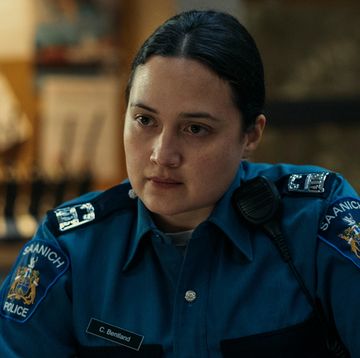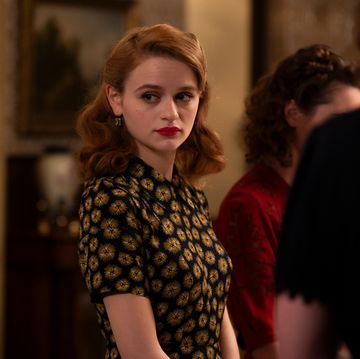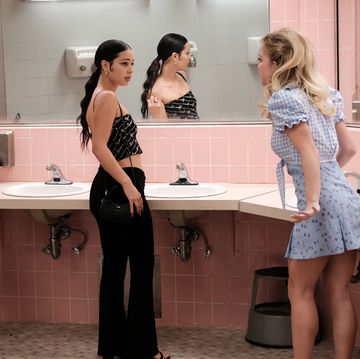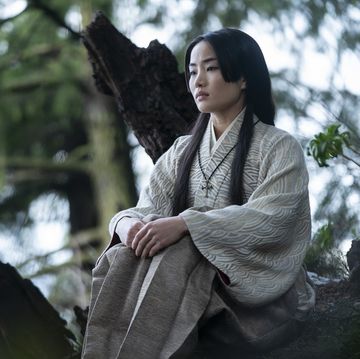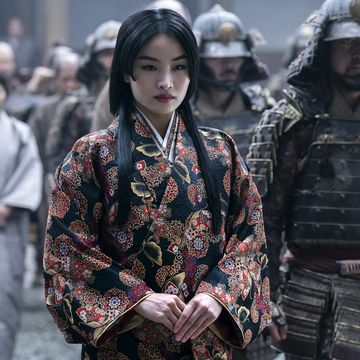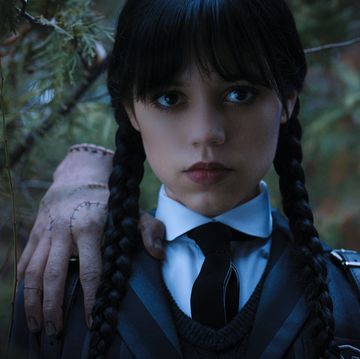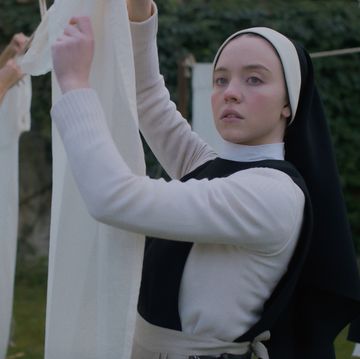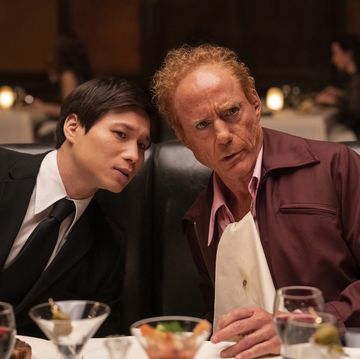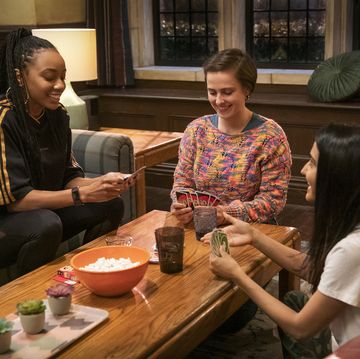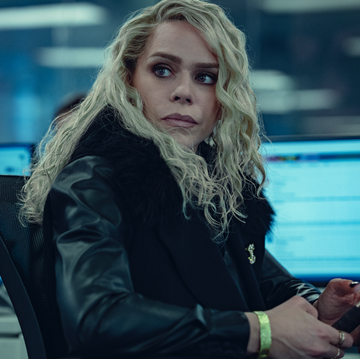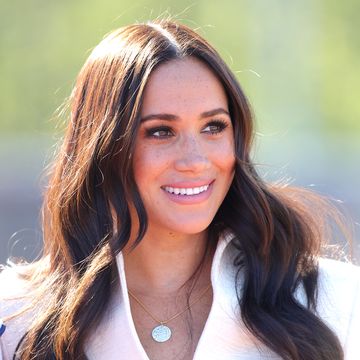I have to keep myself from accidentally calling Rachel Bloom "Rebecca" during our phone interview. The 29-year-old actress and comedian has more than her looks in common with Rebecca Bunch, the neurotic character she plays on the musical comedy Crazy Ex-Girlfriend, which just returned to the CW for its second season. Both women are driven, ambitious, and obsessed with musicals—but Bloom tells me that's pretty much where the similarities end.
"I'm in a much more solid place in my life than she is," says Bloom about her fictional alter-ego, though she does speak with that same quick, chipper Bunch demeanor. "I did the work she hasn't done yet to figure out why I wasn't happy, which has led to a really fulfilling relationship. I'm in a very happy marriage." On the other hand, Rebecca, though a smart and successful lawyer, is completely dissatisfied with her life. In the first season, she spontaneously moves from Manhattan to sleepy West Covina, California, to pursue Josh (Vincent Rodriguez III), the sweet but dim jock with whom she had a fling at summer camp years prior.
"She's someone who has only done what people—her mother, society—has expected of her," Bloom tells me. "I've had the good fortune for most of my life to be able to pursue what I wanted to do." She's referring, of course, to her successful creative career. Aside from starring on the show, which earned her a Best Actress Golden Globe last January, Bloom is also a writer and co-creator, with Aline Brosh McKenna (who wrote The Devil Wears Prada). Bloom describes Rebecca as being "emotionally autobiographical" for both her and McKenna. "She's kind of a child inside, which can be a fault of hers, but I like it. She ultimately wants to see the good in things."
Crazy Ex-Girlfriend's signature is its chameleonic songs, which send up different genres and styles with pitch-perfect accuracy. The first season gave us "The Sexy Getting Ready Song," which sultrily soundtracked Rebecca's not-so-sultry pre-party prep: primping, plucking...and waxing the hair out of her butt. Professional rivalries resulted in a rap battle between Rebecca and a former colleague, a boy band made up of four Joshes performed a beautiful ballad, and an upbeat pop-rock tune about Christmas in California told us more than we ever needed to know about a guy called Chet ("Put on some pants, Chet!"). Other songs's titles are typical of the show's R-rated (for "reality") attitude: "I Gave You a UTI," "Sexy French Depression," "Heavy Boobs."
Yet for all its ridiculousness, the show also hits darker territory. The first season tracked Rebecca's anxiety and pursuit of happiness in romance. "Last season was all about denial and this season is about, well, 'I'm in love,'" says Bloom. "She's gotten what she wanted. Now it's about how much that actually syncs up with what will make her happy." Bloom, McKenna, and their crew are ready to explore what comes after happily ever after.
"When we're watching rom-coms, or anything about two people falling in love, it plays into this natural desire of pursuing a mate, of getting together with that mate," she says. But Bloom also thinks there's something missing from that narrative. "A lot of stories end with the big kiss, the big marriage—and we don't see what's after that." As well as using the rom-com genre as a jumping-off point, Bloom mentions a smart memoir about unrequited love that she and McKenna have both read: Lisa A. Phillips' Unrequited: Women and Romantic Obsession. "It's about the science and biology of obsession, and so that was very much a big inspiration in this season."
For the second season, the show has revamped its opening credits, which now has Rebecca singing—accompanied by a chorus of showgirls dressed as hearts, naturally—"I'm certifiably cute and adorably obsessed." Bloom says she was interested in the way we idealize romantic love, defending it as an end to justify any means. "You can't call her crazy—we're led to believe that if you do insane things, it's okay because love is this noble pursuit," she says. "We're not really taught to question it much."
In true Crazy Ex-Girlfriend fashion, these time-honored concepts of love and coupledom will be taken to their most absurd conclusion, wrenching pathos and humor out of each moment in the way that only a "spontaneous" musical number really can. The best moments of the show deploy musical tropes in order to deconstruct relationships and "romantic" behavior. In the real world, moving across the country to be with a crush might read as "too much"—and so might spontaneously bursting into song. But in this show, the word "crazy" is used with tongue firmly in cheek; the show doesn't endorse Rebecca's extremes, but it is sympathetic to the factors that have pushed her to where she is.
Ultimately, though, the love that Bloom has for these tropes and her characters permeates Crazy Ex-Girlfriend; it's an homage to musicals and romantic comedies as much as it is a satire. "We have a lot of worship for those genres," Bloom says. "You have to know structure to break it. You have to know a stereotype to flip it on its head."

